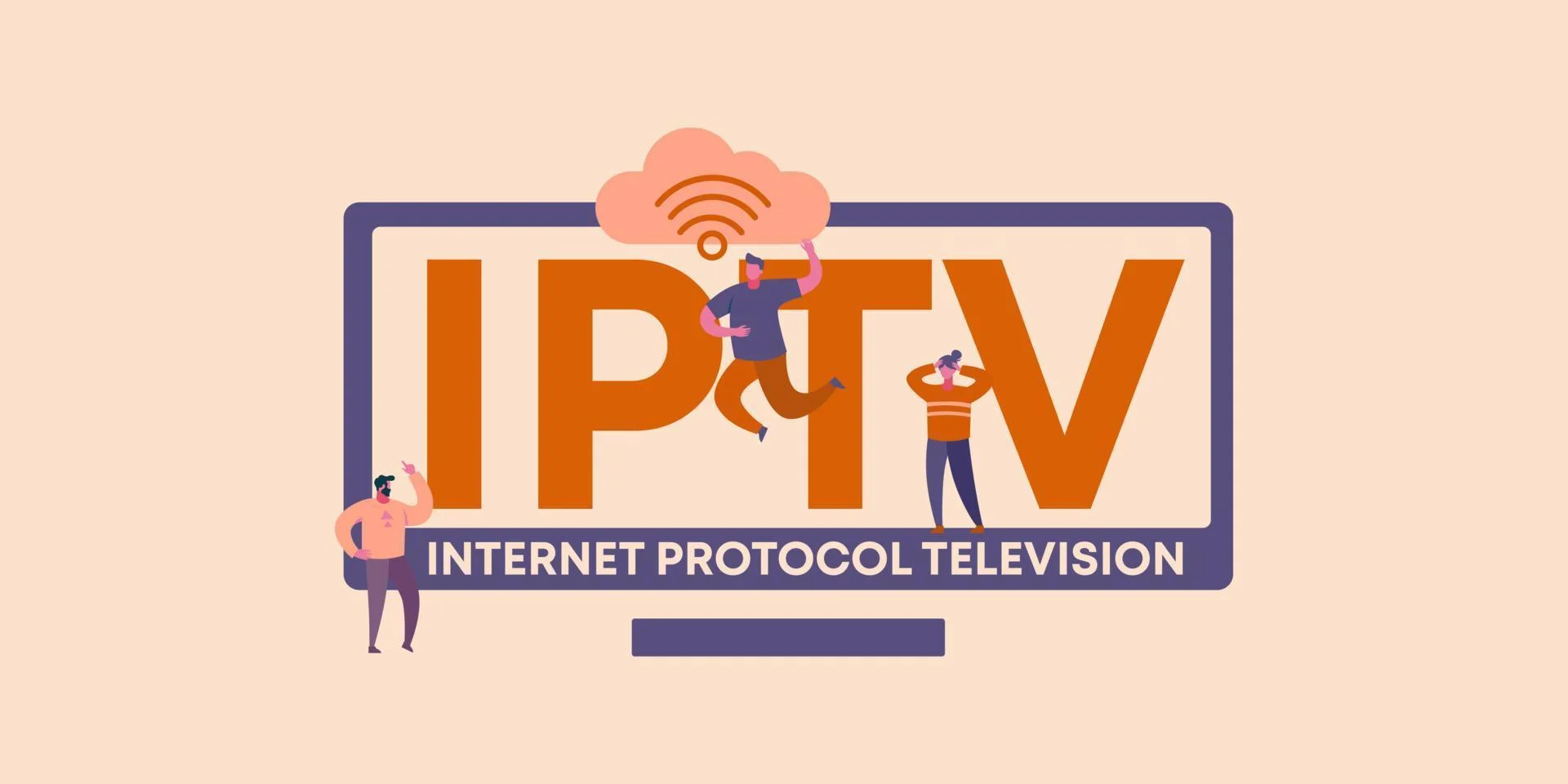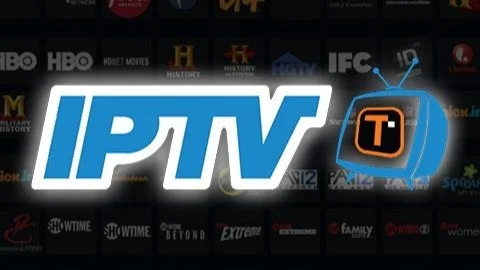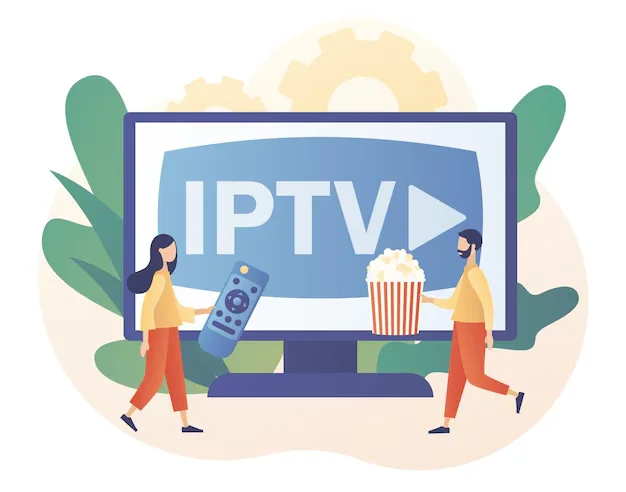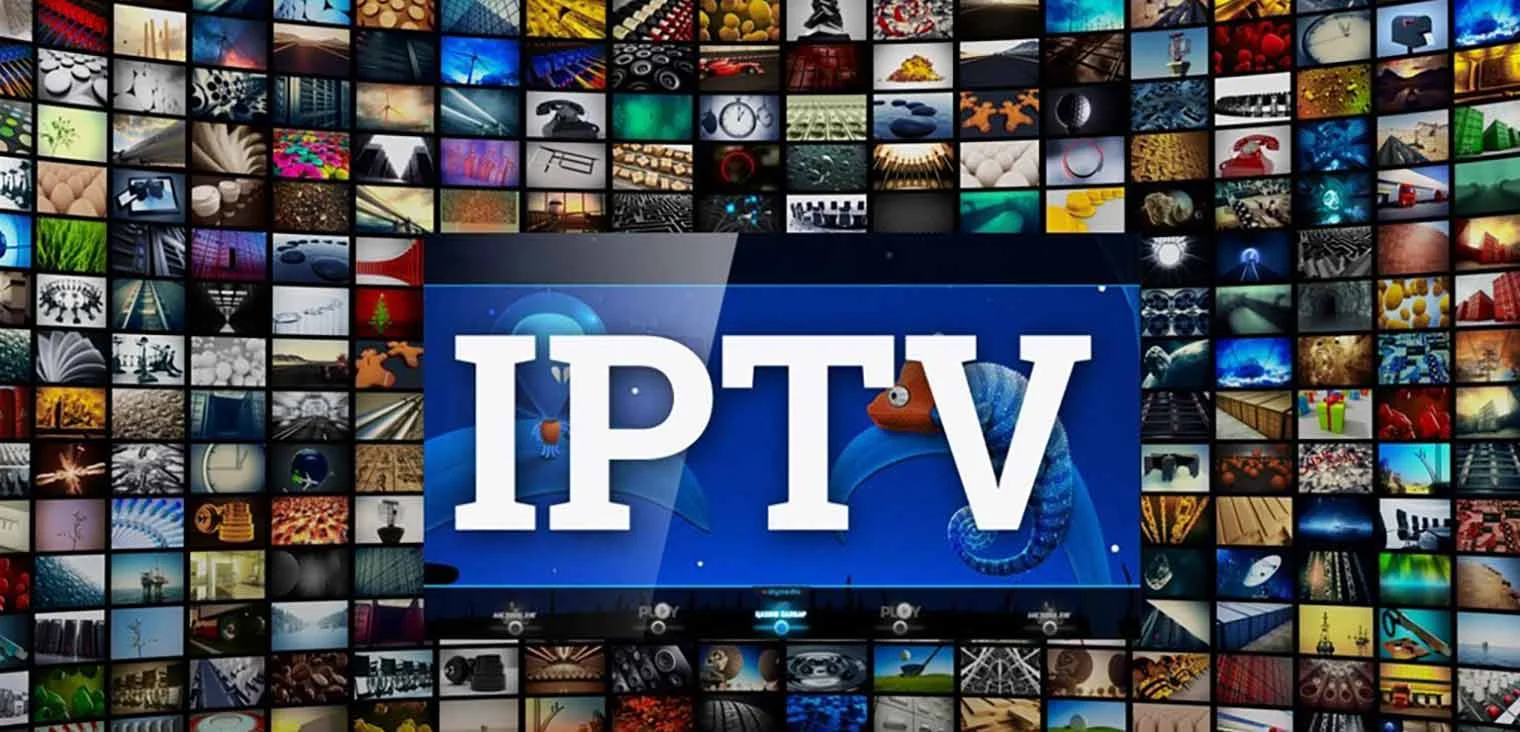IPTV GitHub: The Ultimate Guide to Open-Source Streaming Resources
The world of IPTV has expanded dramatically in recent years, with tech enthusiasts increasingly turning to GitHub as a hub for open-source IPTV solutions. But what exactly makes GitHub such a valuable resource for IPTV users? Whether you’re a developer looking to contribute to projects or simply a streaming enthusiast seeking better tools, understanding the IPTV GitHub ecosystem can significantly enhance your streaming experience.
GitHub hosts countless repositories dedicated to IPTV technology, from player applications to playlist managers and channel aggregators. These community-driven projects offer alternatives to commercial solutions, often with greater flexibility and customization options. Let’s dive into this fascinating intersection of streaming technology and open-source development.

Have you ever wondered how developers collaborate to create powerful IPTV tools? Or perhaps you’re curious about how these open-source projects can benefit your streaming setup? Throughout this comprehensive guide, we’ll explore the most valuable GitHub resources for IPTV enthusiasts and explain how you can leverage them for a superior viewing experience.
What Are IPTV GitHub Repositories?
GitHub repositories dedicated to IPTV serve as collaborative spaces where developers share code, applications, and resources related to Internet Protocol Television. These repositories range from simple playlist collections to sophisticated applications that transform how users access and manage streaming content. But what makes these repositories special compared to commercial solutions?
The core strength of IPTV GitHub projects lies in their community-driven nature. Unlike proprietary software, these open-source alternatives benefit from contributions by developers worldwide, resulting in rapid innovation and problem-solving. When a bug is discovered or a feature is requested, the community can respond quickly, often implementing improvements faster than commercial entities.
Some of the most popular types of IPTV repositories include:
- Playlist collections and aggregators
- Custom IPTV players and applications
- EPG (Electronic Program Guide) generators
- Stream testing and validation tools
- Proxy and VPN integration solutions
For example, one prominent repository contains a massive collection of publicly available IPTV channels from around the world, organized by country and category. This resource allows users to access thousands of channels through a single, well-maintained M3U playlist. Another popular project focuses on creating a lightweight, cross-platform IPTV player that supports various streaming protocols and features an intuitive user interface.

What makes these repositories particularly valuable is their transparency. Users can examine the code directly, ensuring there’s no malicious functionality or unexpected data collection. This level of transparency is rarely found in commercial applications, where the inner workings remain hidden from users.
However, it’s important to note that while GitHub hosts these repositories, users should always ensure they’re accessing content legally. Many repositories focus on providing tools rather than content, leaving the responsibility of content sourcing to the end user. For reliable, legal content, services like IPTV4Cheap offer affordable streaming options with proper licensing agreements.
Top IPTV GitHub Projects for Streaming Enthusiasts
The GitHub ecosystem hosts numerous IPTV projects, but some stand out for their quality, community support, and innovative features. Which projects deserve your attention if you’re looking to enhance your streaming setup? Let’s explore some of the most valuable repositories that have gained traction among IPTV enthusiasts.
One of the most starred projects is an extensive IPTV channels collection that aggregates publicly available streams from around the globe. This repository not only provides a comprehensive M3U playlist but also includes tools for validating streams and filtering channels by category, language, or country. The project is regularly maintained, with contributors constantly adding new channels and removing dead links.
Another notable project is a cross-platform IPTV player application that supports various streaming protocols, including HLS, M3U8, and MPEG-DASH. What makes this player special is its lightweight design combined with powerful features like EPG integration, catch-up TV support, and customizable interface. The application is available for Windows, macOS, Linux, and even Android devices through companion projects.
- IPTV Playlist Managers: Tools that help organize and maintain M3U playlists
- EPG Generators: Applications that create and maintain electronic program guides
- Stream Analyzers: Utilities that check stream health and quality
- Proxy Integration: Solutions for accessing geo-restricted content
![]()
For developers and advanced users, there are also API frameworks that allow for creating custom IPTV solutions. These frameworks provide the building blocks for developing specialized applications tailored to specific needs. For instance, one popular framework enables the creation of middleware systems that can manage user authentication, content delivery, and even billing for IPTV service providers.
While GitHub offers these powerful open-source tools, many users prefer the convenience and reliability of established services. IPTV services like IPTV4Cheap provide ready-to-use solutions with professional support, eliminating the need for technical expertise while still delivering high-quality streaming experiences.
Which project is right for you depends on your technical skills and specific needs. Beginners might start with user-friendly applications, while those with development experience might contribute to or fork existing projects to create customized solutions.
Installing and Configuring IPTV Applications from GitHub
Once you’ve identified a GitHub IPTV project that meets your needs, the next step is installation and configuration. This process varies widely depending on the type of application and your operating system. How do you navigate this potentially complex process? Let’s break it down into manageable steps.
For most GitHub projects, the repository will include detailed installation instructions in the README file. This documentation typically covers requirements, installation steps, and basic configuration. However, the level of detail can vary significantly between projects, with some assuming more technical knowledge than others.
Generally, the installation process follows one of these patterns:
- Direct Download: Some projects provide pre-compiled binaries or installers for various platforms.
- Package Managers: Many applications can be installed via package managers like npm, pip, or apt.
- Building from Source: More technical users might need to clone the repository and compile the application themselves.
- Docker Containers: Some projects offer containerized versions for easy deployment.
For example, to install a popular IPTV player from GitHub on Windows, you might simply download the latest release from the repository’s Releases page and run the installer. On Linux, you might use a command like sudo apt install or build from source using make commands.

After installation, configuration typically involves pointing the application to your IPTV source. This might be a local M3U file or a URL to a playlist provided by a service like IPTV subscription providers. Many applications also allow for customizing the user interface, setting up EPG sources, and configuring playback options.
What challenges might you face during this process? Common issues include missing dependencies, compatibility problems with certain operating systems, or configuration complexities. When you encounter problems, the repository’s Issues section can be invaluable, as others may have faced and solved similar challenges.
For those who prefer a more streamlined experience without the technical hurdles, services like IPTV4Cheap’s setup guides provide step-by-step instructions for popular applications like IPTV Smarters Pro. These guides simplify the process, allowing even non-technical users to enjoy high-quality streaming without the complexity of GitHub installations.
Using GitHub for IPTV Playlist Management
Beyond applications and players, GitHub hosts numerous tools specifically designed for IPTV playlist management. These tools help organize, filter, and maintain M3U playlists, ensuring you have access to working streams and well-organized content. But how exactly do these playlist management tools work, and how can they improve your streaming experience?
Playlist management tools on GitHub typically offer functionalities like:
- Validating streams to remove dead links
- Categorizing channels by genre, language, or country
- Merging multiple playlists into a unified collection
- Filtering content based on user preferences
- Automatically updating playlists from various sources
One popular playlist manager allows users to import multiple M3U sources and automatically checks each stream’s availability at scheduled intervals. The tool then generates a cleaned playlist containing only working streams, saving users from the frustration of encountering dead links during viewing.

Another valuable GitHub project focuses on EPG (Electronic Program Guide) integration, pulling program information from various sources and matching it with channels in your playlist. This creates a rich viewing experience similar to traditional cable or satellite services, with detailed program information and scheduling.
How frequently should you update your playlists? IPTV streams can change or become unavailable without notice, so regular updates are essential. Many management tools include scheduling features that can perform daily or weekly updates automatically, ensuring your playlist remains current without manual intervention.
For those who prefer not to manage playlists manually, subscription services like IPTV4Cheap handle this maintenance behind the scenes, providing regularly updated playlists with working streams. This approach offers convenience while still allowing for use with your preferred player applications.
When working with playlist managers from GitHub, remember that these tools typically don’t provide content themselves—they simply help organize and validate content from sources you provide. Always ensure your content sources are legitimate and comply with copyright laws in your region.
Developing and Contributing to IPTV GitHub Projects
If you have programming skills, contributing to IPTV GitHub projects can be a rewarding way to improve the tools you use while giving back to the community. But how do you get started with development or contributions? What skills are needed, and what types of contributions are most valuable?
The barrier to entry for contributing varies widely between projects. Some contributions require minimal coding skills—for example, updating documentation, reporting bugs, or adding new channels to playlist collections. Others might involve complex programming tasks like implementing new features or optimizing performance.
Common ways to contribute include:
- Bug reporting: Identifying and documenting issues
- Feature requests: Suggesting new functionality
- Documentation: Improving installation guides or user manuals
- Code contributions: Fixing bugs or implementing new features
- Testing: Verifying functionality across different platforms
Most IPTV projects on GitHub use standard contribution workflows. This typically involves forking the repository, making your changes in a branch, and then creating a pull request for the project maintainers to review. The repository will usually include contribution guidelines that outline the preferred process and coding standards.

What programming languages are commonly used in IPTV projects? JavaScript and Python are particularly popular, especially for web-based tools and playlist managers. C++ and Java appear frequently in player applications, while shell scripts are common for automation tools. Knowledge of streaming protocols like HLS and MPEG-DASH is also valuable.
Even if you’re not a developer, you can still contribute meaningfully. Many projects need help with testing across different devices and operating systems. Others benefit from contributions to channel lists or EPG data. Some projects even need translations to make their tools accessible to non-English speakers.
Contributing to open-source projects not only improves the tools for everyone but also helps build your skills and reputation in the community. Many professional developers have launched careers by contributing to open-source projects, using their contributions as portfolio pieces when seeking employment.
For those interested in the business side of IPTV, studying these open-source projects can provide insights into user needs and technological trends. Services like IPTV4Cheap often incorporate learnings from the open-source community to improve their commercial offerings.
Legal and Ethical Considerations for IPTV GitHub Users
While GitHub provides a wealth of IPTV resources, users must navigate important legal and ethical considerations. What are the boundaries between legitimate open-source development and potential copyright infringement? How can you ensure your use of these tools remains on the right side of the law?
It’s crucial to understand that the tools themselves—players, playlist managers, and related utilities—are generally legal software projects. The potential legal issues arise from how these tools are used and the content they access. This distinction is sometimes called the “dual-use” nature of technology: the same tool can have both legitimate and potentially infringing uses.
GitHub’s own policies prohibit content that clearly infringes copyright, and the platform regularly responds to DMCA takedown notices. As a result, most long-standing IPTV repositories focus on providing tools rather than direct access to protected content. When repositories do include channel lists, they typically focus on legally free streams like public broadcasting services.

What should users be aware of? Here are some key considerations:
- Using tools to access content you don’t have rights to may violate copyright laws
- Laws regarding streaming content vary significantly by country
- Some repositories may walk a fine line between tool provision and facilitating access to protected content
- Open-source licenses on the tools themselves don’t extend to the content accessed
How can you use these tools responsibly? Focus on legitimate use cases like:
- Accessing content from services you subscribe to
- Streaming publicly available, legal content
- Creating personal media solutions for content you own
- Developing and improving the technology itself
For those seeking a completely legal solution without navigating these complexities, licensed services like IPTV4Cheap’s subscription plans provide access to content through proper licensing arrangements, eliminating legal concerns while still offering affordable streaming options.
Remember that ethical considerations extend beyond strict legality. Supporting content creators through legitimate channels ensures the continued production of the media we enjoy. The open-source community thrives best when it focuses on advancing technology while respecting intellectual property rights.
The Future of IPTV GitHub Projects and Community Development
As streaming technology continues to evolve, what does the future hold for IPTV GitHub projects? How will changing technologies, user expectations, and regulatory environments shape the development of these open-source tools? Let’s explore the emerging trends and potential directions for this dynamic ecosystem.
Several technological trends are likely to influence future development:
- AI Integration: Machine learning algorithms are increasingly being used to enhance content discovery, improve stream quality, and automate maintenance tasks.
- Decentralized Technologies: Some projects are exploring blockchain and peer-to-peer technologies to create more resilient streaming networks.
- Enhanced Interactivity: Beyond passive viewing, developers are adding interactive elements like chat, polls, and social features.
- Cross-Platform Compatibility: As streaming moves beyond traditional devices, projects are expanding to support smart TVs, VR headsets, and other emerging platforms.

The community itself is also evolving. What began as relatively small, technically-focused groups is expanding to include more diverse participants with varying skills. This broader community brings new perspectives and use cases, driving innovation in previously unexplored directions. We’re seeing increased collaboration between projects, with standardization efforts making tools more interoperable.
What challenges might shape the future of these projects? Regulatory environments around streaming continue to evolve, potentially affecting how these tools can be developed and distributed. Technical challenges like adapting to new streaming protocols and security requirements will require ongoing innovation. And as commercial services adopt features pioneered by open-source projects, developers will need to continue finding new ways to add value.
For users, these developments promise richer experiences with more personalization, better performance, and greater reliability. The line between traditional television and IPTV will likely continue to blur as these technologies mature, potentially leading to entirely new forms of media consumption.
Services like IPTV4Cheap’s multi-connection options demonstrate how commercial providers are already incorporating innovations from the open-source community, offering features like simultaneous streaming on multiple devices that were once exclusive to custom solutions.
The most exciting aspect of this future is its collaborative nature. Unlike closed ecosystems where development is directed by corporate interests, the open-source IPTV community allows users to directly influence the tools they use. This democratic approach to development ensures that the resulting technologies truly serve user needs rather than business models.
Whether you’re a developer, a contributor, or simply a user of these tools, your participation helps shape this evolving ecosystem. By supporting open-source IPTV projects—through code contributions, bug reports, documentation, or even just providing feedback—you’re helping build the future of streaming technology.